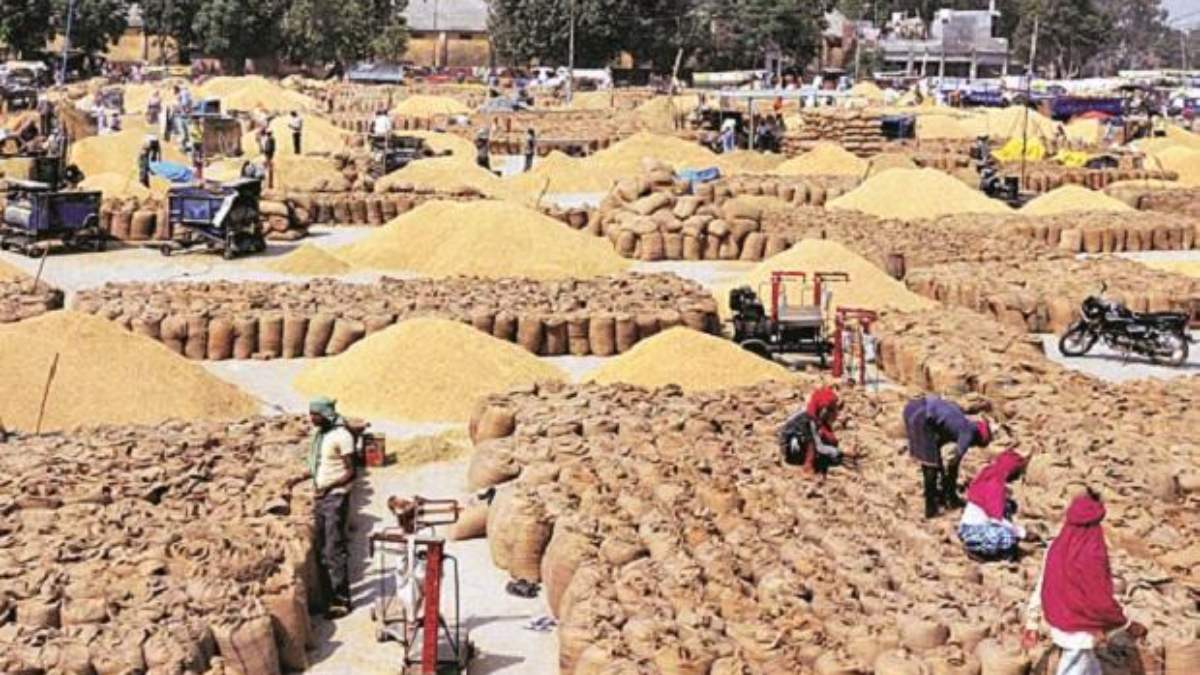The passage of reformist, pro-farmer legislation in Parliament has unleashed the fury of those who stand to lose, and their proxies.
The apparently contradictory objectives of providing remunerative prices to farmers and cheap food to consumers have dogged India’s political economy for a long time. Usually, the Government, irrespective of the party in power, weighs in favour of consumer interests. After all, even small farmers and agricultural workers are net buyers of food. Thus, export bans on commodities are frequent and futures markets for agriculture commodities have been frowned upon. Now, with the passage of three historic Bills, the Narendra Modi government has made a determined attempt to end the apparent conflict of interest between farmers and consumers.
It is no secret that under the old system, both farmers and consumers got a raw deal. It is the middlemen/traders who prospered by profiting from the yawning gap between farm gate price and retail price. Farmers got a low price for their produce—the monopsony effect (single buyer) of APMC Act and consumers paid a high price—the monopoly (singer seller) effect. Now, the abolition of APMC monopolies, amendment to the antiquated Essential Commodities Act and introduction of a Contract Farming law will usher in competition and choice
Of course, when vested interests are uprooted, the sound is deafening. The passage of reformist, pro-farmer legislation in Parliament has unleashed the fury of those who stand to lose, and their proxies. These are not farmers. Nor are they the average Indian consumer. These are the interests who have profited at the expense of both farmers and consumers for decades. Now, with their monopoly profits under mortal threat, they are flexing their considerable financial and political muscle to force a policy reversal. The Government must stand firm.
There seems to be a grave, possibly deliberate, misinterpretation of the facts. The abolition of the APMC Act does not put any trader out of business. Nor does it prohibit the farmer from selling to these traders at the existing mandis. What it does do is introduce competition and choice, principles which should be applauded by all those who care for the welfare of both farmers and consumers. Naturally, these will be abhorred by those who could make extraordinary profits without having to work hard for it.
Nothing in the new laws prevents traders from running mandis. But it permits farmers to look for alternatives, whether selling to another mandi, or to a food processer, or the national e-market or directly to corporates/retailers, or indeed anyone interested in buying farming produce. The farmer does not need protection from choices—he or she is perfectly capable of choosing the best offer available. Traders will be compelled to sweeten their offer to survive. Competition is a leveler in a way the hand of government can never be.
This will be a major achievement with long term implications. It will finally end the need for the Government’s constant intervention in mediating the conflict between higher prices for farmers and food inflation for consumers. Hopefully, export bans will be consigned to the dustbin of history. In fact, those who are genuinely pro-farmer should have outraged over the government decision to ban onion exports just days before the passage of the reformist legislation. But that decision did not hurt vested interests, only farmers.
It should also end the reluctance to permit future trading in all agricultural commodities. Futures would provide important price signals to the famer and enable a better and more informed choice in sowing decisions. Price signals are accepted as a means of resource allocation in other parts of the economy so why not agriculture?
The other myth being perpetuated is that these reforms spell the end of government support for the farmer. Support for farmers is the cornerstone of India’s politics. And it will continue to be. The APMC Act and Essential Commodities Act never worked in the interest of farmers. The Minimum Support Price system works in favour of certain farmers only. While it is unlikely that MSP will be abolished or withdrawn anytime soon, there is a need to relook at the way farmers are supported by the Government. There must be a greater focus on income support so that crop failure or a crash in prices does not destroy lives and livelihoods. And there must be a shift to providing more support on the input side—seeds, irrigation, credit and extension. It is India’s tragedy that MSP alone is equated with support for farmers. If anything, over the years, MSP has distorted sowing choices by encouraging farmers to grow crops which may not be suitable for the land they till and resources they possess. And created shortages of those commodities which are not covered by the MSP system.
This is the perfect moment to switch from a faux protection of farmer interests to proactive support. The Modi Government has taken the first, bold steps in that direction.
Dhiraj Nayyar is Chief Economist, Vedanta Resources.

